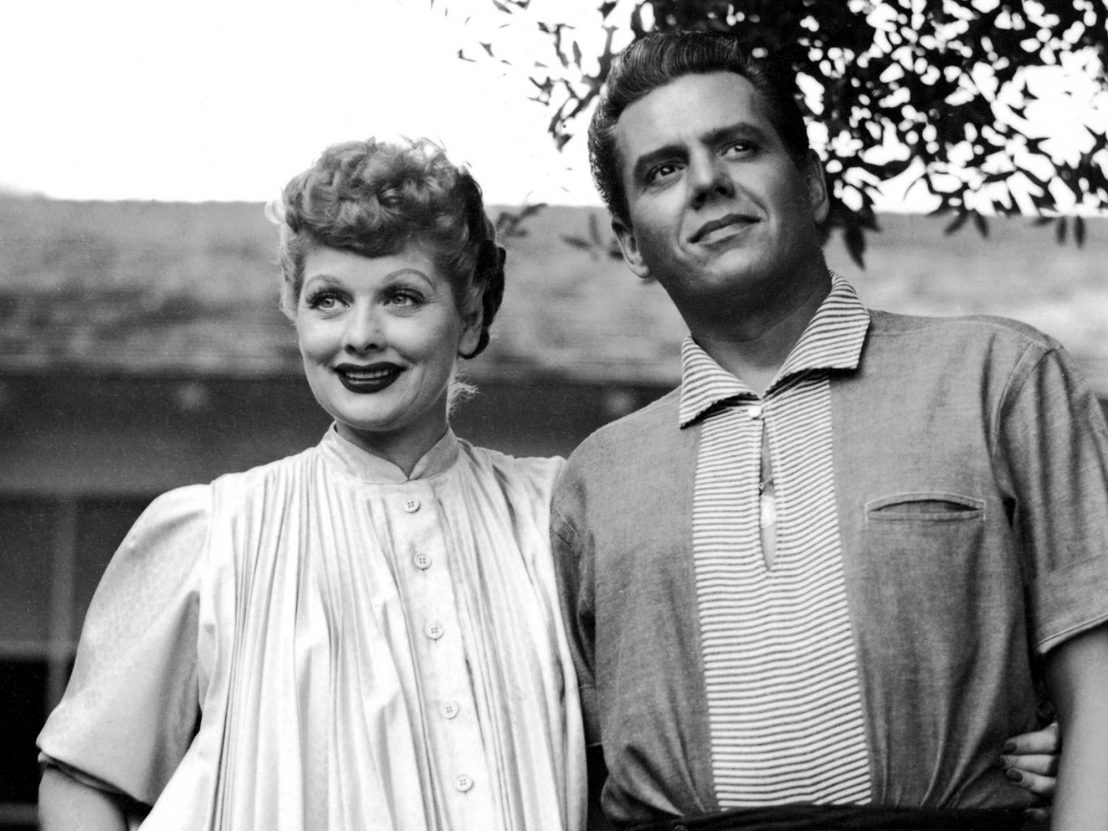
Amy Poehler directs this intimate portrait of the legendary TV couple, creators of the sitcom I Love Lucy.
In 1953, I Love Lucy was number one in the US ratings and the birth of Lucy and Ricky Ricardo’s baby knocked President Eisenhower’s inauguration off the front pages. Television was still in its infancy and this revolutionary storyline cemented Lucille Ball and Desi Arnaz as the first family of situation comedy. The real-life married couple didn’t get the same happily-ever-after as the Ricardos, but the on and off-screen antics of the trailblazing duo still captivate audiences decades later.
Hot on the heels of Aaron Sorkin’s biopic, Amy Poehler makes her documentary directorial debut with an intimate portrait of the pair that captures triumphs, passion, heartbreak, and an indelible legacy. It is a partnership that continued after their divorce and the array of talking heads – that includes their daughter Lucie Arnaz Luckinbill, Bette Midler, Carol Burnett, Norman Lear and academic experts – paints a vivid picture for new and old fans alike.
“It’s too bad Lucille and Desi weren’t Lucy and Ricky,” says Arnaz during opening credits that mix archival footage, home movies, I Love Lucy clips, and newspaper headlines. Poehler skilfully weaves the wealth of material she had access to throughout Lucy & Desi, which includes the tender (and sometimes fraught) personal recordings that point to how much of the couple’s home life was caught on camera.
Taking a predominantly linear approach establishes central themes early on, from the importance of family to Ball’s methods that placed a premium on rehearsal, observation, and “the enchanted sense of play.” Arnaz’s natural storytelling charm is evident from clips of him recounting the rom-com worthy first meeting in the RKO commissary and his belief that “my whole life has been a bunch of accidents.” While Arnaz underplays his contribution and lays most of the success on Ball’s shoulders, Poehler illustrates his cultural impact both in front of and behind the camera.
Not only did I Love Lucy shape production methods, but the married on-screen pairing of a Cuban-American man with a white woman was virtually unheard of in the early 1950s. Famously, the couple toured the US to prove to TV network CBS that audiences would believe this union. “Desi brought sophistication where Latinos had hardly ever been seen as sophisticated,” observes Cuban playwright and professor Eduardo Machado about the entertainer who proudly embraced his roots.
Peeling back the layers reflects the climate of midcentury Hollywood (including the Communist scare that is the focus of Being the Ricardos), as well as the conversation surrounding the couple’s personal and professional reputations. Arnaz’s drinking and philandering are not brushed under the carpet, but Poehler manages to avoid tabloid-style missives.
Similarly, Executive Director of the National Comedy Center Journey Gunderson discusses how in recent decades there has been “disproportionate focus on how hard-nosed” Ball was behind the scenes and she puts it into context with working in that era. Insights from Gunderson and the National Comedy Center’s Director of Archives & Research Laura LaPlaca are a welcome addition that expands the narrative beyond old talking points while still acknowledging Ball’s edges.
Thankfully this never veers into “girlbossification” – even when covering Ball’s reign as the president of Desilu Productions – and Ball’s hands-on approach to mentoring can be traced back to her early days at RKO. Poehler’s successful comedy career no doubt informs this exploration and her unique perspective benefits the material. It is conversations about method and innovation that sets Lucy & Desi apart from other depictions of this couple – in fact, there could have been more of this.
While divorce isn’t the resolution viewers saw on TV (like most episodes, their final on-screen appearance ended in a kiss), tenderness between the pair outlasted this breakup and adds a bittersweet layer to the rich story. “I Love Lucy was never just a title,” reflected Arnaz in a letter written 35 years ago, and Poehler’s documentary proves this still rings true today.
Published 23 Jan 2022

By Leila Latif
Nicole Kidman and Javier Bardem play TV legends Lucille Ball and Desi Arnaz in Aaron Sorkin’s snappy biopic.

By Ed Gibbs
The first feature doc to be shot entirely inside the world of social VR is a rich, uplifting experience.

Jon S Baird’s biopic makes you question whether the titular silent comedy duo were ever funny in the first place.